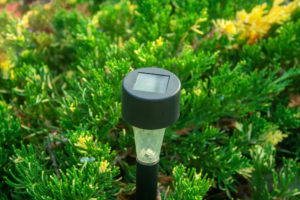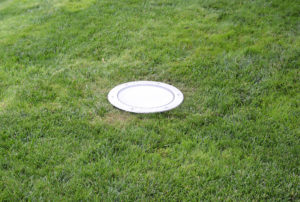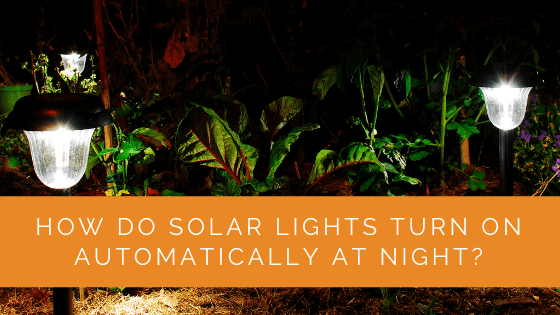Solar devices come with a wide range of benefits in addition to being environment-friendly. Plus, they turn on automatically when it is dark and go off when there is light.
This particular feature makes your space easier to maintain and beautiful. So, how does a solar light automatically turn on at night and go off in the daytime?
The solar lights come with sensors that can detect the presence of sunlight. They work like a gate between the LEDs and the batteries. So, when the sensor detects no sunlight, it connects the battery and the LEDs. This will allow the power to flow to the bulbs, and they light up.
Keep reading to learn more about how solar-powered lights turn on automatically!
Contents
- 1 Key Takeaways
- 2 How Do Outdoor Solar Lights Turn On Automatically At Night?
- 3 How Does A Solar Light Automatically Turn Off In The Day?
- 4 Types Of Photosensors Used in Solar Lights
- 5 What Should I Do If the Solar Lights Are Not Working At Night?
- 6 How do you check if the sensors are not working?
- 7 Solar Lights Stay On During The Day: What Should I Do?
- 8 Expert Insights From Our Solar Panel Installers About Automatic Solar Light Functionality
- 9 Our Expertise in Solar Lights
- 10 Final Words
Key Takeaways
- Solar lights turn on automatically at night and off during the day due to built-in photosensors that detect the presence or absence of sunlight, acting as a gateway between the LEDs and the battery.
- Different photosensors are used in solar lights, including basic light sensors, lux sensors considering light intensity, and PIR sensors with motion detection capabilities.
- Common issues with solar lights not working at night include insufficient sunlight, faulty batteries, malfunctioning sensors, water penetration, and interference from nearby light sources. Proper maintenance and placement can help ensure their effectiveness.
How Do Outdoor Solar Lights Turn On Automatically At Night?
Solar lights have built-in photosensors to detect the presence or absence of direct sunlight. A photosensor is an electronic device that can sense visible light (along with ultraviolet and infrared) with the help of semiconductors.
The solar lights use this photosensor as a gateway between the LEDs and the system’s battery. The sensor detects no light when the solar lights do not receive direct sunlight.
As a result, it will open up the gates for the battery to transfer power to the light bulbs. Consequently, the solar yard lights will turn on and light up the space.

How Does A Solar Light Automatically Turn Off In The Day?
Similar to turning on automatically, solar lights use photosensors to detect the presence of sunlight. When it senses sunlight, the panels block the path between the LEDs and the battery. This will prevent the battery from transferring power to the lights.
When the light goes off automatically in the morning, this will allow the solar light batteries to charge. The batteries receive solar energy through the solar panels during the day, so they will have enough energy to light up at night.
Types Of Photosensors Used in Solar Lights
Solar lights use various types of light sensors. It ranges from a basic light sensor to sophisticated PIR sensors. Depending on the model of your solar-powered light, the varieties of sensors vary.
Now, take a look at some of the most common types of photosensors used in solar floodlights:
Light Sensor
A light sensor is a basic photosensor that makes the solar lights turn on at night and go off during the day. It is a photoelectric device that converts light energy into electrical signals.
Lux Sensor
A lux sensor works similarly to a light sensor. However, it senses the intensity of light in addition to its presence of it. It will sense how dark the surrounding is to turn on the solar floodlight. You can adjust it to your desired settings.
PIR Sensor
PIR sensor or passive infrared sensor is a more advanced device. It has a motion sensor, which is usually used in most security solar lights. These detectors sense heat when someone is walking by and adjust the brightness of the outdoor solar lights.
What Should I Do If the Solar Lights Are Not Working At Night?
There are many reasons why the solar lights might not be working. It can be because of faulty wires or a broken battery, too. So, look at some common problems and what you can do about them.
Solar Panel is Not Receiving Enough Sunlight
If the solar lights are in a place covered with shade from trees or other buildings, it may not get sufficient sunlight. Although they do not need direct solar light, they require adequate daylight. This will ensure the solar panels receive enough light to charge the batteries.
Typically, solar lights charge the batteries when exposed to six to eight hours of daylight. This will vary depending on the type of solar panel, the intensity of light, and the battery.
Solar Lights With a Faulty Battery
Most solar lights go off when the battery is faulty or dead. Therefore, it is advisable to check whether the battery is too old.
Solar Lights With a Faulty Sensor
If the sensor is faulty, the solar lights can not distinguish between daytime and night. Although the solar panel will charge during the day, it will not turn on at night.

Water Penetration into the Solar Panel
Most solar lights are resistant to water, yet sometimes, even a little water can penetrate and damage the wiring. The faulty wiring will prevent the solar cells and lights from functioning properly. Sometimes, dirt penetration can cause the same problem. Therefore, checking the IP ratings of the electronic components before buying them is vital.
Nearby Light Sources
The sensors in solar lights can get confused if there are other brighter light sources around them. This problem is more common in poorly manufactured solar lights.
Place the solar cell in the most appropriate positions to avoid this issue. It should be away from other light sources, including street, neighbor, and garage lights. Alternatively, you can switch the other lights off or replace them with less bright options.
How do you check if the sensors are not working?
Cover the sensor with a cloth or hand to block the sunlight. If it is brought to light, they are working alright. On the other hand, if it does not illuminate, it’s time to replace the sensors.
Solar Lights Stay On During The Day: What Should I Do?
If the solar lights do not automatically turn off during the day, the photosensors are not working. In such cases, the solar light will stay on during the day because it does not sense any light.
The circuit running between the battery and the bulbs always stays open. So, your solar light will stay on as if in darkness.
Expert Insights From Our Solar Panel Installers About Automatic Solar Light Functionality
The key to solar lights turning on automatically at night lies in the photosensors. These sensors detect the absence of sunlight, allowing the battery to power the LEDs. Proper placement and maintenance ensure these sensors function optimally.
Lead Solar Engineer
Regularly cleaning the solar panels and checking for any obstructions that might block sunlight is crucial. Even a small amount of dirt or debris can impact the performance of the photosensors and the overall efficiency of your solar lights.
Senior Solar Technician
Advanced solar lights with PIR sensors not only light up in the dark but also respond to motion, enhancing security and energy efficiency. Keeping these sensors free from dust and debris is essential for reliable performance.
Renewable Energy Specialist
Our Expertise in Solar Lights
At Solar Panels Network USA, we’re here to provide you with valuable information and support regarding solar lighting. With our experience and understanding of the solar lighting industry, our team of experts is prepared to assist you in finding the right lighting solution for your needs. Whether you’re interested in improving your outdoor spaces, conserving energy, or adopting a more sustainable approach, we’re well-equipped to help. Please feel free to contact us with any questions or inquiries.
Final Words
Solar lights harness sunlight to brighten your yard or any outdoor space. It uses photosensors to automatically switch on when it’s dark and go off during dawn.
Depending on the type of solar light, it can have a basic light sensor, lux sensor, or PIR sensor. Sometimes, the sensors may not work correctly for several reasons. You can make the best of it if you keep them in sunny areas and maintain them properly.
About the Author
Solar Panels Network USA stands at the forefront of solar energy solutions, driven by a team of seasoned solar engineers and energy consultants. With over decades of experience in delivering high-quality solar installations and maintenance, we are committed to promoting sustainable energy through customer-centric, tailored solutions. Our articles reflect this commitment, crafted collaboratively by experts to provide accurate, up-to-date insights into solar technology, ensuring our readers are well-informed and empowered in their solar energy decisions.

